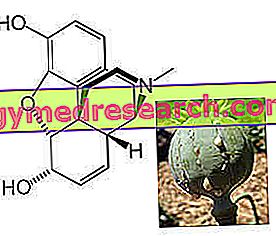Generality
Itching is a fairly common symptom, which can be attributed to numerous pathological and non-pathological conditions.

Often, this manifestation depends on trivial reasons, such as excessive sweating, extreme dryness of the skin or the sting of an insect. In addition to being a typical symptom of skin problems, in some cases, itching can signal the presence of more severe systemic diseases .
Depending on the cause triggered, the itchy sensation may be associated with other symptoms, including burning, swelling, blistering, numbness or tingling.
Itching can cause significant discomfort; if intense and persistent, it induces in those who suffer from it the desire or the reflex of scratching, therefore it can predispose to complications like excoriations or secondary infections .
Given the wide spectrum of possible causes, the characteristics of itching and the onset of this symptom in relation to other manifestations are important for the differential diagnosis. Depending on the cause, itching can be treated with a specific and targeted treatment.
What's this
Itching: what is it?
The itching is a rather annoying symptom, capable of instinctively inducing the scratching reaction. Based on the cause that caused its appearance, the itching sensation is of variable gravity and can affect limited areas of the skin or is generalized ; this latter concern is more worrying than a local demonstration.
Itching can affect any age group, from children to the elderly.
Causes
Itching: what are the causes?
The itching is a symptom: as such, the itchy sensation is not to be considered a disease, but rather represents the indicator of a problem that can be dermatological or systemic.
The itching can be triggered by different stimuli and underlying conditions, of varying extent and nature . Causes include, for example, dermatosis, liver disease, diabetes, uremia, neurological disorders and blood circulation problems. The itching can also appear in situations of high stress.
Numerous chemical mediators and different mechanisms contribute to induce, transmit and maintain this sensation. A complex system of regulation and conduction of the stimulus through fibers and nerve receptors of various types intervenes, in fact, in the processing of the itching by the central nervous system .
Histamine is one of the most significant mediators and, historically, it is considered the " itch molecule ". This is synthesized and stored in cutaneous mast cells and is released in response to various stimuli (eg allergens, collateral reaction of certain drugs etc.). The substances involved in the genesis and maintenance of itching include cytokines, interleukins, serotonin, proteases, bradykinin, opioid peptides, substance P and many others.
Dermatological causes
In daily life, itching can be induced by almost trivial stimuli. Just think of the sensation caused by a vibration, a light touch or repeated or prolonged contact with an irritant, such as wool fibers or particularly aggressive household detergents. Even insect bites, such as mosquitoes, can induce localized itching.
There are, then, many primitive or secondary skin diseases with other diseases that manifest themselves with this symptom.
The most frequent causes of itching include:
- Excessive skin dryness (xerosis);
- Atopic dermatitis (eczema);
- Irritative contact dermatitis;
- Allergic contact dermatitis;
- Urticaria;
- Chronic lichen simplex (or neurodermatitis);
- Psoriasis;
- Herpetic dermatitis;
- Puncture of an insect (eg mosquitoes, pappataci or tunga penetrans, the "sand flea");
- Excessive sweating;
- Dyshidrosis (or dyshidrotic eczema);
- Plantar warts.

The itching of the skin can also be attributed to:
- Sun rash and photodermatitis;
- Pediculosis;
- Scabies;
- Exanthematous diseases (eg varicella);
- Skin mycoses (eg dermatophytosis, candida infections, etc.);
- Bullous pemphigoid;
- Pityriasis rosea;
- Impetigo.
The itching can be secondary also to the use of products for the daily hygiene too aggressive, to the scarce hydration and to the frequentation of very hot and dry environments.
Systemic causes
If it is particularly persistent, itching can be a symptom of systemic diseases, with or without associated cutaneous manifestations.
The most common causes are:
- cholestasis;
- Kidney failure;
- Uremia;
- Liver disorders.
The itching may also depend on generalized allergic phenomena against drugs, foods, bites and insect bites.
Other systemic causes of itching include:
- Tireopathies (including hyperthyroidism and hypothyroidism);
- Circulation disorder (eg venous insufficiency, thrombosis etc.);
- Blood pressure problems;
- Parasitosis of the gastrointestinal tract;
- Diabetes;
- Iron deficiency anemia;
- Polycythemia vera;
- HIV infection.
The itching can also be associated with the presence of neoplasms such as:
- Hodgkin's lymphoma;
- Myeloma;
- Ovarian cancer;
- Intestinal tumor;
- Breast cancer
- Prostate cancer.
Itching in Pregnancy

Itching can occur during pregnancy, especially in the last quarter.
During gestation, the itchy sensation may be due to three main conditions:
- Pregnancy cholestasis;
- Herpes gestationis (or pemphigoid gravidarum);
- Polymorphic dermatitis of pregnancy.
Other factors can contribute to itching, such as high transaminases during pregnancy, hormonal changes, water retention or liver disease.
To learn more: Gravidic cholestasis - Symptoms and Causes »Reaction to drugs and other iatrogenic causes of pruritus
The itching can be a side effect of numerous drugs indicated to control different pathologies such as hypertension, cardiovascular or cerebrovascular problems, diabetes, gout, arthrosis, etc. Some of these medicines can trigger an allergic reaction, while others directly cause histamine release. Most commonly responsible for this adverse effect are: morphine, aspirin, barbiturates, penicillin, antifungal agents, chemotherapeutic agents and certain contrast agents administered intravenously.
Psychogenic and neuropathic causes
Other causes of itching are neuropathic, that is related to pathologies of the central or peripheral nervous system, as in the case, for example, of:
- Multiple sclerosis;
- Herpes zoster infection (shingles).
When it is a symptom of serious neurological diseases, itching can also be associated with pain, intense tingling and burning.
Furthermore, itching can result from psychiatric disorders or diseases, as occurs in the presence of:
- Various forms of psychosis;
- Schizophrenia;
- Anxiety;
- Hypochondria;
- Obsessive-compulsive disorders;
- Eating behavior disorders;
- Depression.
Some people particularly "sensitive" to the rhythms of life, feel the desire to scratch themselves, even when they are not affected by particular psychiatric pathologies. This is the case, for example, of the itching that occurs along with other somatic symptoms, during periods of tension, particularly stressful from a physical and psychological point of view.
Symptoms and Complications
Itching: what does it look like?
- The itching generally presents itself as an annoying sensation of variable gravity, similar to the tickling or comparable to a tingling, which induces an urgency to scratch.
- The itching can be localized only in some zones or generalized, that is diffused in various parts of the body.
- Pruritus can present itself as the only manifestation or may be associated with other signs in the skin or in general.

Itching: what other symptoms can you associate with?
Depending on the aetiology, itching may or may not be accompanied by other symptoms, such as:
- Burning;
- pricking;
- Redness (diffuse or patchy erythema);
- Swelling (edema);
- Ache.
The presence of signs on the skin that accompany itching, as in the case of eczema, psoriasis or urticaria, helps to identify the cause more easily.
These events may include:
- Papules, blisters or boils;
- pustules;
- Crusts;
- Ulcers;
- Xerosis (dry skin);
- flaking;
- hyperkeratosis;
- Superficial skin thickening (lichenification);
- Rhagades (skin fissures).
When it appears in the absence of cutaneous signs or in the presence of non-specific scratching lesions, it is useful to understand if the itching is concomitant to the following conditions:
- The patient has changed the cosmetics or hygiene products usually used;
- The patient came into contact with potentially allergenic or irritating substances;
- The patient has started or changed a drug therapy.
In general, the following symptoms may indicate that the cause of itching is severe:
- Weight loss, fatigue or night sweats (could indicate a serious infection);
- Weakness, numbness or tingling (could be a warning of a nervous system disorder);
- Abdominal pain or jaundice (could indicate a disorder of the gallbladder or liver);
- Excessive thirst, particularly frequent urination and weight loss (could indicate the presence of undiagnosed or decompensated diabetes).
In these cases, you should consult a doctor as soon as possible, approximately within a week.
Itching: when does it manifest?
Depending on the cause, itching may occur suddenly or gradually (ie, worsening during the day, without any remedy reliably relieving it). This manifestation can also be sporadic (associated with a single episode, such as the bite of a mosquito), continuous or recurrent (ie it remains, with temporary remissions, until the underlying pathology is resolved).
If this symptom persists for more than 6 months, it is called chronic itching .
Possible complications associated with itching

If very intense, itching can cause the desire or reflex to scratch; this behavior should be avoided, as it can predispose to:
- Inflammation;
- excoriation;
- Secondary infections (bacterial overlaps);
- Eczema chronicization.
Itching can be a completely harmless disorder. However, if this symptom is persistent or particularly frequent, it is advisable to undergo a careful medical evaluation to establish with certainty what the underlying cause is.
Diagnosis
In most cases, itching has a transient duration and resolves spontaneously. However, if this symptom is persistent and spread to other parts of the body, it is best to consult a doctor so as to accurately assess the problem.
Itching: when to go to the doctor?
In the event that the disorder does not regress within a few days or in the presence of one of the associated pathologies, it is advisable to consult your primary care physician or dermatologist . The clinical evaluation of itching is quite complex: the spectrum of possible causes is very broad, therefore an analysis of its characteristics and any associated symptoms is necessary to interpret this manifestation, to understand its origin and its severity.
- History and evaluation of symptoms. To investigate the causes of the itching, first of all, the doctor asks a series of questions related to the symptomatology and personal medical history, therefore he asks the patient to clearly describe the disorder and the correlation with other concomitant manifestations. In the diagnosis phase it is also important to ascertain any ongoing drug therapies that may have induced itching as a side effect.
- Physical examination. Once the collection of anamnestic data has been completed, a careful objective examination is performed. The doctor examines the skin to check for alterations or signs indicative of a dermatological disease. The physical examination can further orient the diagnosis of the causes of the itch by focusing on:
- Time of debut;
- Type and location of skin lesions (if present).
Other diagnostic investigations. The results of medical history and physical examination help to decide if further tests are needed to establish the origin of itching. When there is no obvious skin pathology, a systemic disease must always be suspected, especially when the itching begins suddenly and is relentless. Sometimes, however, itching is a manifestation of diseases that have already been diagnosed, such as in the case of allergies, kidney failure or hematological diseases. Medical check-ups must be carried out especially if a pregnancy is present. The psychosomatic origin of itching must be taken into consideration when all possible organic causes are excluded.
Itching: what tests are indicated?
If the diagnosis is unclear or the doctor cannot determine with certainty the triggers of itching, investigations may be indicated to rule out important diseases, such as diabetes.
These exams may include:
- Blood analysis;
- Urinalysis;
- Microbiological cultures;
- Allergic tests.
When to consult a doctor urgently
Pruritus can be an early symptom of some particular diseases, according to which it should be interpreted as an alarm bell . In some cases, in fact, the itchy sensation precedes the appearance of the important clinical signs of the pathology in question and is very important to arrive at a diagnosis.
Some examples:
- In Hodgkin's lymphoma, intense itching is one of the spy symptoms; this is accentuated at night and is accompanied by intense sweating.
- A diffuse pruritic sensation, triggered or accentuated by contact with water (the so-called aquagenic itching) is a symptom suggestive of polycythemia vera, a disease characterized by excessive production of red blood cells.
Treatment and Remedies
In some cases, itching tends to resolve spontaneously within a few days, but some remedies can be used to obtain more or less lasting relief. Other times, instead, therapeutic interventions aimed at solving the underlying cause are necessary.
Itching: how can it be treated?
Treatment varies depending on the aetiology of itching. The strategies to alleviate this symptom, in fact, are many and it is necessary to intervene in a targeted way on the factors that triggered it.

Drugs to counteract itching
In the event that the triggering cause can be of pathological origin, the itching can be relieved by topical drugs (creams, ointments, gels, lotions or ointments to be applied directly on the area) or systemic (for severe or extensive reactions, to be taken by way of oral or other method of administration).
The medicines that are used most often in case of itching include:
- Antihistamines : they are the mainstay of itching therapy. These medicines inhibit the release of histamine, thereby reducing the itchy symptoms;
- Corticosteroids : anti-inflammatories and immunosuppressants, are useful in cases where the itching is linked to diseases that cause severe inflammation of the skin (such as psoriasis) and see the involvement of the immune system;
- Calcineurin inhibitors : reducing inflammation of the skin, they also act secondarily on the itch;
- Antifungals : used in cases of itching due to mycosis (eg ringworm);
- Antiseptics or antibiotics : they are used in the presence of an exudative or blister-bullous component, to prevent infectious complications.
Depending on the cause, then, they can be used:
- Ursodeoxycholic acid (cholestasis from pregnancy);
- Antiepileptics, such as gabapentin and pregabalin (uremic and neuropathic itching);
- Antidepressants, such as mirtazapine and paroxetine (neuropathies, uremia and cholestasis);
- Antagonists of opioid receptors (uremia and certain dermatological diseases).
Other therapies for itching
- The phototherapy associated or not with psoralen (PUVA-therapy) is useful above all in the case of dermatological diseases (eczema, psoriasis and cutaneous lymphomas).
- Capsaicin can help manage neurological itching, such as post-herpetic itching.
- Menthol at concentrations below 5% can cause a temporary and localized reduction in skin temperature, helping to relieve itching (note: in higher concentrations, this substance is irritating).
- Local anesthetics (lidocaine, prilocaine etc.) in cream may prove useful in localized itching of various origins.
- Wrapping of areas that are more itchy can help prevent scratch-induced damage; instead, keeping nails short can avoid the formation of excoriations and secondary skin lesions.
Symptomatic remedies
In addition to any necessary pharmacological treatment, there are several symptomatic remedies that can alleviate the discomfort caused by itching.
To limit the duration and frequency of itchy episodes it is possible, for example, to resort to some small precautions, such as keeping the skin clean and dry .
In the presence of itching, it is important to avoid tissues, cosmetics and other potential irritants, such as tight clothing, woolen socks and hygiene products that are reactive.
Furthermore, to restore the skin's barrier function, reduce xerosis (dryness) and prevent irritation, it is useful to apply emollients / moisturizers, especially after showering. In this regard, it may be useful to limit the duration of the baths, being careful to use lukewarm water and preferring products with few surfactants (little foaming). Too frequent, excessively hot or prolonged showers should be avoided, as well as the use of aggressive detergents can promote dryness and exacerbate itching.



